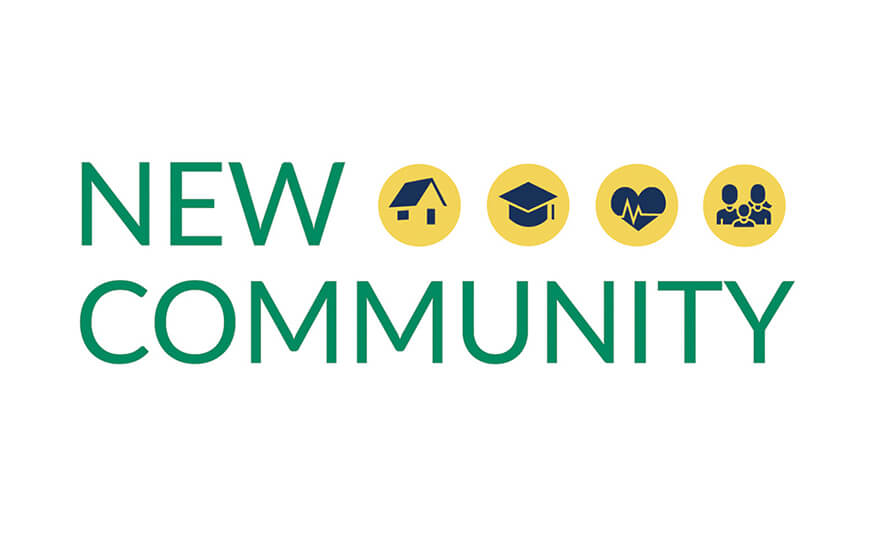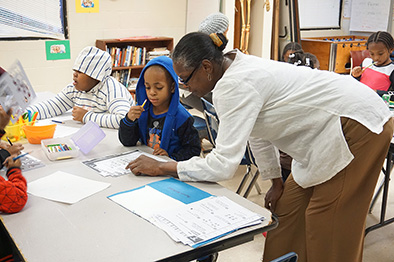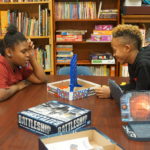Children in kindergarten through seventh grade living at Harmony House, New Community’s transitional housing facility for homeless families, have a place to go once the school day ends to enhance their learning and have some fun.
The Harmony House Excel program, which runs from 3 to 6 p.m. each school day at Harmony House, provides children with a hot, nutritious meal; homework instruction and assistance, including one-on-one tutoring if needed; character education; and recreational activities like arts and crafts and organized games. There are currently 20 children in the program, which has room for 25 participants and is available exclusively to Harmony House families.
“The goal is to help our students develop basic skills and to succeed in school, in addition to providing them with the opportunity to try new things,” said Edward Morris, director of Youth Services at New Community.
The main purpose of the program is academic enrichment so the children spend one hour on their homework. If they finish their homework early, they are provided with appropriate academic work to complete for the remainder of the time.
In addition to Harmony House staff, two members of the Essex Regional Educational Services Commission (ERESC) work with the children. There is currently one teacher and one social worker involved. In total, four staff members run the after-school program.
Judith Robertson, the teacher from ERESC, explained that staff members interact with the students’ teachers and act as a liaison for parents.
“We provide continuity between school and home,” she said.
Morris said Excel program staff members are in contact with teachers and counselors to see where the students are in class so they can help the students get where they need to be and address any issues that may be occurring.
Children do more than academic work during the program. Board games and puzzles are available to them, as well as arts and crafts, science activities and cooking. On Fridays, the children go to the NCC Neighborhood Center around 4:30 p.m. to participate in joint organized activities with children in the program there, including relay races and obstacle courses.
“Academics is the focus, but we want them to experience other things while they’re here as well,” Morris said.
In addition to helping the children, the Excel program also involves the parents. Parent workshops are held, with topics chosen based on surveys that parents receive. Staff members encourage parents to volunteer during the program and they hold special events periodically to bring the parents and children together.
Celestine Swain, whose two children have participated in the after-school program, said it has a great impact.
“The entire staff here work very hard to try to make the transition from being homeless to being a home,” she said. “Whatever resources they can offer, they do.”
Morris said the after-school program provides a positive atmosphere for participants.
“The kids enjoy it because they get to work with staff and take part in a number of fun activities,” he said.
NCC received a grant from the Children’s Interagency Coordinating Council (CIACC) over the summer to fund the after-school program through December. The grant is from the county to address unmet needs of children in Essex County. It pays for staff, supplies and food.
“Getting this grant enhances our Harmony House transitional home program by providing children stability and support for their educational needs while gaining support for stability in securing permanent housing,” said Chief of Health and Social Services Arti Kakkar.
Morris is hoping to get the program licensed with the New Jersey Department of Licensing, which would allow for additional funding sources. He’s hoping to have the license in early 2018.






